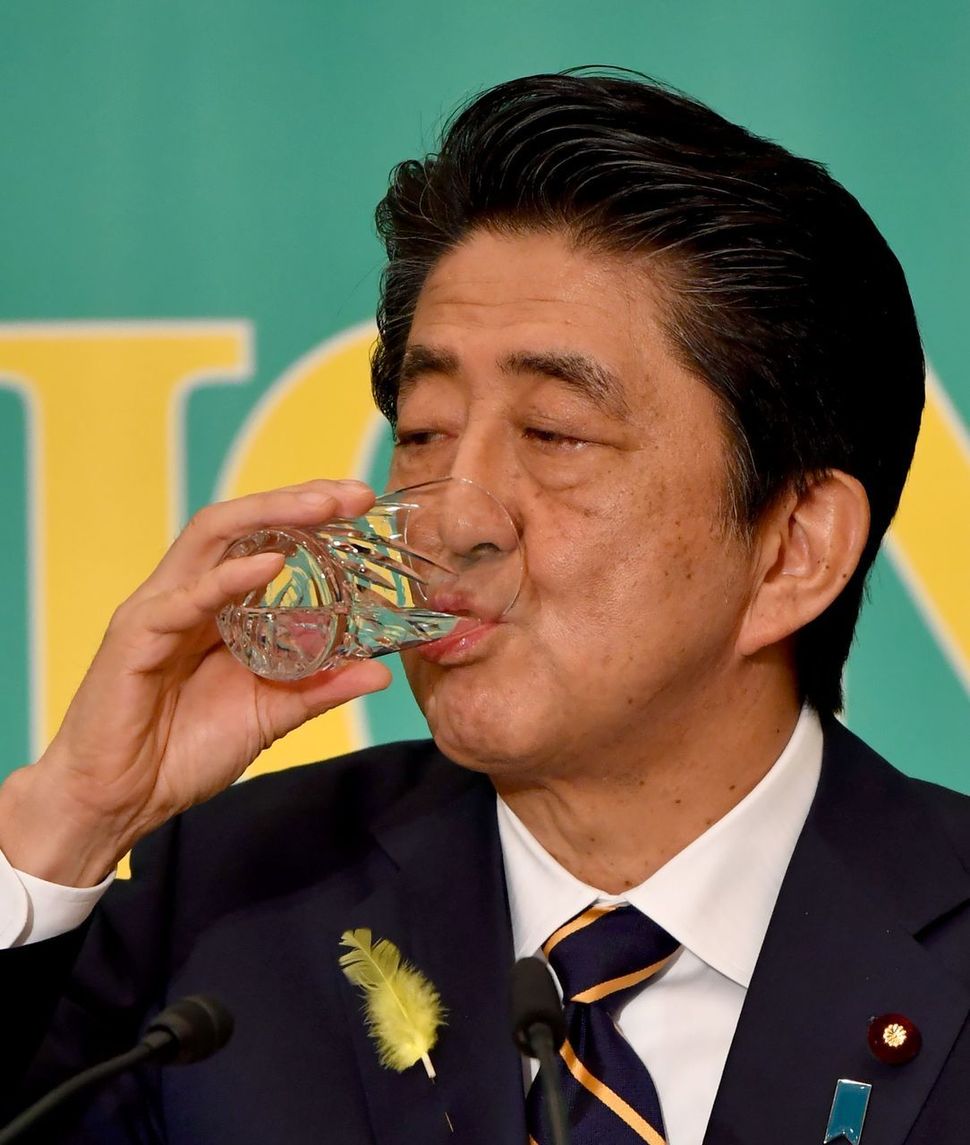 |
|
Japanese Prime Minister Shinzo Abe at a roundtable discussion at the Japan National Press Club on July 3. (AFP/Yonhap News)
|
Tokyo’s export controls were the result of months of deliberation, not a sudden outburst
In coarse terms, the gist of the Shinzo Abe administration’s beef with South Korea in terms of historic issues is that South Korea does not respect the international order and does not honor its promises. In addition to this, Japanese conservative media and right-wingers also argue that South Korea puts “emotions” ahead of “logic.” These figures have put forth the argument that the matter of forced labor mobilization during Japan’s colonial occupation of Korea was completely resolved in 1965 with the Agreement between Japan and the Republic of Korea Concerning the Settlement of Problems in Regard to Property and Claims and Economic Cooperation (Claims Settlement Agreement). That agreement states that Japan and the Republic of Korea “confirm that the problems concerning property, rights, and interests of the two High Contracting Parties and their peoples (including juridical persons) and the claims between the High Contracting Parties and between their peoples, including those stipulated in Article IV(a) of the Peace Treaty with Japan signed at the city of San Francisco on September 8, 1951, have been settled completely and finally.” Their position is that with the two sides having already confirmed the issue of Japanese military comfort women to have been “finally and irreversibly resolved“ with an agreement between their governments in December 2015, all that remains is for them to implement the agreement. Fundamentally, this is a difficult argument to support, as it does not attempt to directly confront the damage suffered by victims of forced labor and the comfort women survivors. As far as the South Korea-Japan Claims Settlement Agreement is concerned, even Japanese lawyers have noted that it did not extinguish individual claims. At the same time, it could be understood in terms of a sort of logical consistency on the Japanese government’s part. That’s how it felt, at any rate, until late last year. But recently it has become impossible not to question Japan’s entire line of reasoning on the “international order” and the “importance of keeping promises.” In December 2018, the Japanese government announced that it would be resuming commercial whaling and pulling out of the International Convention for the Regulation of Whaling as of July 2019, after previously halting the practice in 1988. The reasons it gave for its withdrawal – that whaling resources were showing a trend of recovery, and that whaling itself was a longstanding Japanese cultural tradition – were in defiance of global trends. It also began arguing that the World Trade Organization (WTO) was not performing its dispute resolution role, after Japan lost in its WTO appeal battle with South Korea this April concerning an import ban on seafood from Fukushima and seven surrounding Japanese prefectures. Despite taking every opportunity to emphasize the importance of the international order, international law, and promises in and of themselves, the Japanese government changed its tune once the outcome went against it. On July 1, the Japanese government announced that it was stepping up export regulations on three items, including semiconductor materials. Once again, it cited “damage to the relationship of trust” between the two sides as a reason. Even in Japan, many saw this as a “resistance measure” against South Korean Supreme Court rulings ordering the payment of damages for forced labor, but Tokyo insisted this was not the case. On the last day of the G20 Summit in Osaka on June 29 – two days before it announced the export control measures – the Japanese government spearheaded the drafting of a joint declaration that stressed the importance of a “free, fair, non-discriminatory” trade environment.
 |
|
Cho Ki-weon, Tokyo correspondent
|







